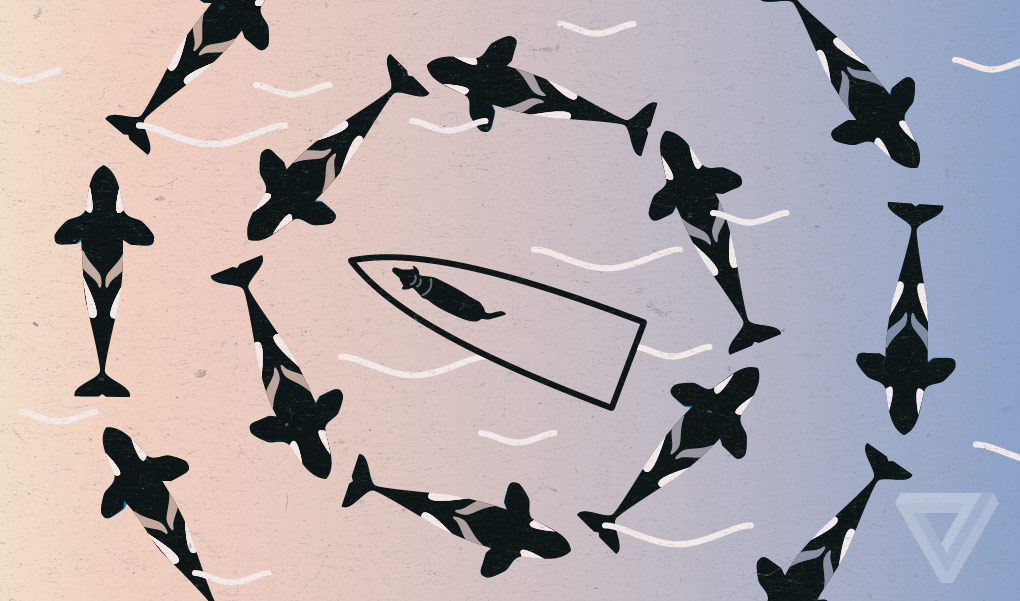TOP STORIES
Human impact on parasitic disease questioned
Human behaviour could be a major contributing factor in the transmission of parasitic infections to wildlife, research being conducted across WA suggests. A recent review has critically reconsidered the significance of a concept called the ‘One Health Triad’ which looks at disease interactions between humans, domestic animals, wildlife and the environment.
Murdoch University School of Veterinary and Health Science’s Andrew Thompson says this research challenges the idea that the flow of parasitic diseases from animals to humans is one-way. “The impetus for the development of this so-called one health concept was principally thinking about diseases wildlife were giving to humans and domestic animals,” Professor Thompson says.
“We need to not just consider wildlife as the villains, because ultimately we are just as much the villains as wildlife are.” He says urban expansion, mining exploration, animal transportation and captive breeding programs are all potential causes of increased susceptibility to disease that have been previously unexplored.
Fecal finders: how poop-sniffing dogs are helping killer whales
Scat samples offer essential insight into the problems of orcas
Tucker, a nine-year-old black lab mix, is an improbable character in a high-stakes detective story: the case of the declining orcas. He’s sniffing for a needle in a haystack — a small plastic container filled with the feces of a killer whale, floating somewhere in the vastness of the Strait of Juan de Fuca in northwestern Washington state. With his body language — pacing across the bow, leaning over its edge, the angle of his nose — he tells his handler, Liz Seely, and Deborah Giles, who sits behind the wheel, where to steer.
....But this isn’t a game. The whales whose poop Tucker pursues across the Salish Sea belong to an endangered population, the Southern Residents — a genetically and behaviorally distinct group of orcas that feeds here each summer and whose population is at its lowest in years. The scientists on board believe that Tucker’s impressive olfactory feats may help them figure out what’s wrong with the whales, and what can be done to help them.
....“[Poop] has everything in it. It’s got a whole suite of reproductive, stress, and nutrition hormones. All the major toxins are present in there,” Wasser says. “It’s got DNA from the host, it’s got DNA from the prey that it’s eating. So you can get an incredible picture from just a single sample.” Get a lot of samples spread over time, and you can begin to map how different stressors affect the health of the animals, and how they interact. Hopefully, you can find out what changes to make to have the most positive impact.
Marine Animals Continue to Die of Mysterious Cause in Indian River Lagoon
Scientists perplexed over record dolphin, manatee, and pelican deaths in “distressed” estuary
The mysterious die-offs of marine life in parts of the 156-mile Indian River Lagoon have perplexed scientists, alarmed environmentalists, and angered local citizens. Over the past year, record numbers of dolphins, manatees and pelicans have been found dead in the estuary that runs along Florida’s Atlantic Coast. The lagoon is a unique subtropical ecosystem that is home to 4,300 species of wildlife, including more than 40 threatened or endangered species. The interconnected lacelike system of rivers, wetlands, and coastal marshes stretches south along the Atlantic from Volusia County to Martin County, passing Cape Canaveral midway.
...Dolphins and pelicans are not the only casualties in Indian River Lagoon. In Brevard County alone, 112 of the 274 manatees deaths recorded since July 2012 seem to be related to the UME, according to a spokesperson for the Florida Fish and Wildlife Conservation Commission. Manatees die from various causes throughout the year in Florida, including natural and human-related (for example, from being locked in flood gates or canals). However, the massive die-off in the lagoon is unusual, enough to earn it a UME designation as well.
OTHER WILDLIFE HEALTH RELATED NEWS
- Dead dolphin left to decompose on Long Rock beach [Long Rock, England - Map It
 ]
] - Researchers discover innate virus-killing power in mammals
- Ecology and Evolution of Infectious Diseases Grant Supports Research on Disease Transmission to be Conducted by UCSB Mellichamp Chair in Systems Biology
- Robert C. Stebbins, expert on reptiles and amphibians, dies at 98
- Elk management plan OK’d for areas at risk for brucellosis [North of Yellowstone National Park, USA]
- Botulism outbreak kills swans in Longford river [Feltham, England - Map It
 ]
] - Botulism Outbreak May Dampen Early Season Waterfowl Hunting [Fort Boise Wildlife Management Area, Idaho, USA - Map It
 ]
] - No cure in sight for loon-killing botulism [Michigan, USA - Map It
 ]
]
- Scientists hope to cure disease devastating bats in southeast Minnesota
- Surveys show numbers taking drastic drop as WNS cases increase [Pennsylvania, USA]
- White-nose syndrome a death sentence for many local bats [Tennessee, USA]
- Why Scientists Held Back Details On A Unique Botulinum Toxin [NPR]
- Bat 'immunity' over malaria parasites could could be key to human vaccines, says top scientist
- Wild hares carry sheep worms
- Another outbreak?: Congo virus threatens lives, warn doctors
- Properly disseminating findings on diseases, researchers urged
- Skin Infection Linked to Exposure to Aquariums is Under-Diagnosed
- Snarling Tasmanian Devils Arrive in USA [Discovery]
- Local biologist propagates endangered coral species






No comments:
Post a Comment